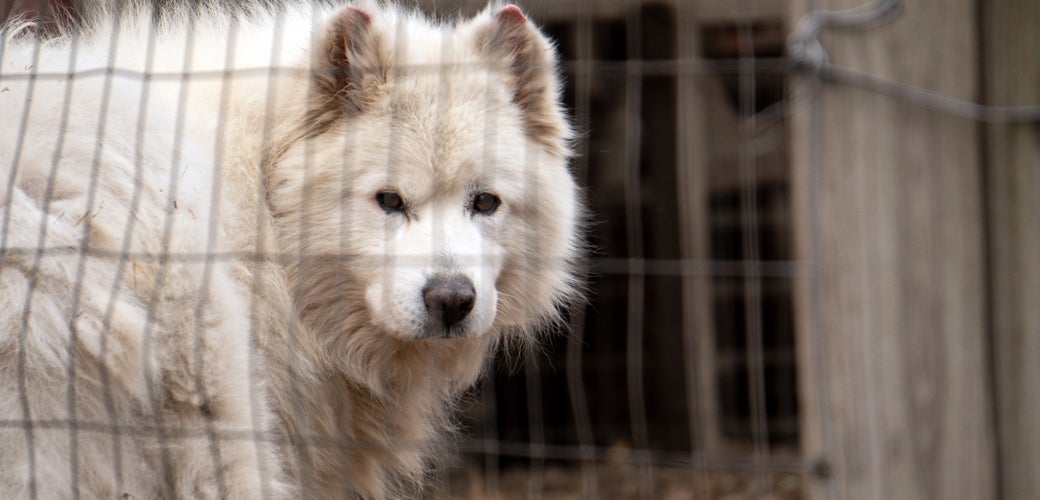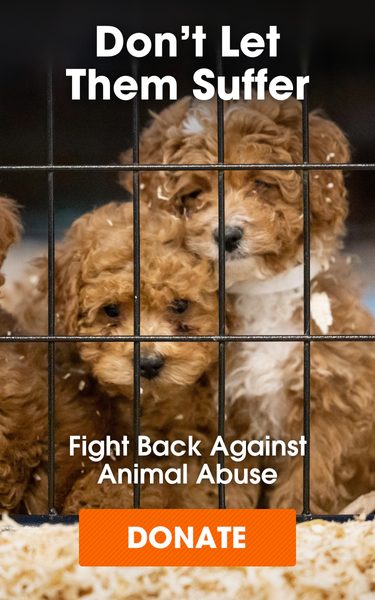
Preemption Laws: When State Authority Overrides Local Authority

What is state preemption?
State “preemption” laws are designed to prevent or “preempt” local governments from passing or enforcing legislation related to a particular subject matter. Additionally, the federal government can preempt states from enacting specific laws or override state laws that are contradictory to federal law.
What’s an example of a bad preemption law?
For years now, local governments (cities, towns and counties) have taken a stand against the cruel puppy-breeding industry and have acted to shut down the puppy mill pipeline into their communities by prohibiting the sale of commercially bred dogs in retail stores within their borders. This means that pet stores can partner with shelters and rescues to offer dogs (and cats) for adoption but cannot offer young puppies sourced directly from puppy mills.
As a result of the threat that local retail sales bans have on the lucrative but inhumane puppy-breeding industry, this industry’s lobbyists are attempting to pass state-level legislation that prevents municipalities in that state from using their authority to regulate pet stores at the local level. To put it another way, industry lobbyists want to pass state-level laws that will preempt or stop local governments from regulating where pet stores get their dogs. This is an example of a form of preemption that the ASPCA opposes, because it would leave more dogs to suffer in squalid conditions.
But harmful preemption laws don’t just affect pets—they may target farm animals, too. In response to growing public concern about the welfare of farm animals raised in factory farms, some local governments have banned certain industrial practices that have been shown to cause animal suffering or excessive pollution. Rather than reform these destructive practices, agribusinesses are responding by pushing for Right to Farm (RTF) laws—which greatly limit the ability of municipalities to regulate conditions on farms, including the cruel confinement of farm animals. Ultimately, RTF laws protect the interests of the industrial agriculture industry over those of local communities, animals and the environment.
Can preemption be helpful?
While preemption laws can be damaging, sometimes they help protect animals from harmful, discriminatory laws. In recent years, some states have tried to protect dogs by preventing or banning breed-discriminatory legislation. Breed-specific legislation (BSL) is the blanket term for laws that either regulate or ban certain dog breeds in an effort to decrease dog attacks on humans and other animals. However, the problem of dangerous dogs will not be remedied by the “quick fix” of breed-discriminatory laws.
There is no evidence that breed-specific laws make communities safer for people or companion animals. Following a thorough study of human fatalities resulting from dog bites, the Centers for Disease Control and Prevention (CDC) decided to strongly oppose BSL. What’s more, these ineffective bans prevent people from choosing the dogs they want for their families, while punishing otherwise friendly, well-socialized dogs.
While more than 700 U.S. cities have enacted breed-specific laws, many states, including New York, Texas and California, have enacted statewide BSL preemption.
Unlike attempts at the state level to preempt local governments from regulating pet stores, prohibiting breed specific laws does not remove the ability to regulate dangerous dogs. Rather it provides for the adoption of non-discriminatory breed neutral “dangerous dog” laws, which consider dogs as individuals and assess their specific circumstances rather than singling out specific breeds. This type of state-level regulation protects people and their companion animals more effectively.
Why does preemption matter?
Certain “preemption” efforts—such as those that support the puppy mill and agriculture industries—are dangerous, as they effectively allow corporate interests to interfere with local governments, which are the most in touch with the needs of their communities and overall public sentiment regarding public health, animal welfare and consumer protection. These preemption attempts also create confusion for the public, media and even lawmakers because they often masquerade as positive animal welfare laws, employing deceptive bill titles and deeply burying the clauses of the bill that will eradicate local control.
What’s going on with retail puppy sales?
Cities and counties across the U.S. have enacted laws to keep cruelly bred puppies out of their pet stores. In response, pet store lobbyists are pressuring state legislatures to pass “preemption” laws that will overturn these municipal-level decisions.
I need a quick refresher. What are puppy mills again?
Most puppies sold in pet stores come from puppy mills, which are commercial breeding facilities that breed the highest number of puppies at the lowest possible cost and prioritize profit over the health and welfare of animals. Dogs owned by these operations are often kept in overcrowded and unsanitary conditions without adequate veterinary care, food, water or socialization. While the conditions found in commercial breeding facilities are cruel, they are commonplace—and many are even perfectly legal.
If you’ve never seen a puppy mill, it’s because the commercial dog breeding industry really doesn’t want you to. So how do these puppies end up in pet stores? When objectified and sold as commodities, puppies are oftentimes shipped from out-of-state puppy mills through a pipeline of breeders and middlemen. It’s a cruel and broken system made possible because in many states across the country, it’s still legal to sell dogs in pet stores.
I don’t want puppies to suffer. What can I do about this?
Even if you aren’t actively seeking a new canine companion, you can take a stand and make a real difference for those who are suffering. Join the ASPCA Advocacy Brigade today to get updates on where these preemption bills are being introduced and find out how you can help make a difference for animals in your state by fighting back against the cruel puppy-breeding industry .
